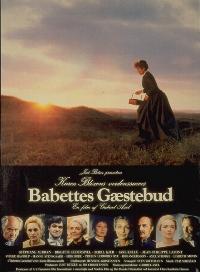A blog formerly known as Bookishness / By Charles Matthews
"Dazzled by so many and such marvelous inventions, the people of Macondo ... became indignant over the living images that the prosperous merchant Bruno Crespi projected in the theater with the lion-head ticket windows, for a character who had died and was buried in one film and for whose misfortune tears had been shed would reappear alive and transformed into an Arab in the next one. The audience, who had paid two cents apiece to share the difficulties of the actors, would not tolerate that outlandish fraud and they broke up the seats. The mayor, at the urging of Bruno Crespi, explained in a proclamation that the cinema was a machine of illusions that did not merit the emotional outbursts of the audience. With that discouraging explanation many ... decided not to return to the movies, considering that they already had too many troubles of their own to weep over the acted-out misfortunes of imaginary beings."--Gabriel García Márquez, One Hundred Years of Solitude
Thursday, April 27, 2017
Babette's Feast (Gabriel Axel, 1987)
I had an odd experience this morning when I sat down to write this blog entry: I couldn't remember what film I watched last night. Ordinarily I'd ascribe this memory lapse to a "senior moment," but once I remembered that the film was Gabriel Axel's Babette's Feast, I thought I knew what caused it. This is what I call a "mood movie," one that, like some pieces of music, is designed -- or perhaps better, destined -- to put you into a certain emotional state. In the case of Babette's Feast, it's a kind of sweet melancholy, a state so ephemeral that almost anything can sweep it away -- as my experience of Babette's Feast was wiped away when I watched Survivor and Marvel's Agents of Shield, not exactly sweetly melancholic shows, immediately afterward on TV. This is not meant as a knock on Gabriel Axel's film, the screenplay for which he adapted from a story by Karin Blixen (aka Isak Dinesen). After all, it won the Oscar for best foreign language film, beating out among other contenders Louis Malle's Au Revoir les Enfants. It does what it does extraordinarily well, which is to tell a story, evoke a particular time and place, and present us with memorable characters. It centers on two sisters, Filippa (Bodil Kjer) and Martine (Birgitte Federspiel), who live in a small Danish village where they tend to the aging congregation of a small, austere sect which their father gathered together many years ago. A kindly man, he nevertheless dominated their lives to the extent that suitors were discouraged from marrying them. One of Filippa's suitors was an aging French operatic baritone, Achille Papin (Jean-Philippe Lafont), who was traveling through the village and happened to hear her singing in the church. Smitten with both her beauty and her voice, he offered to give her singing lessons, but when he proposed to take her to Paris and make her a diva, she took fright and turned him down. Some years later, during the unrest in Paris after the fall of the Second Empire in 1871, Papin sends to the sisters a young woman whose life has been threatened. Her name is Babette Hersant, his letter tells them, and she's an excellent cook who would be a fine housekeeper for them. Babette (Stéphane Audran) takes up residence with them and proves to be invaluable, bringing Parisian skills at seeking out the best food in the markets and bargaining for the best price. And then one day Babette receives word that an old lottery ticket has finally paid off to the tune of 10,000 francs. It is also the hundredth anniversary of the founding of the small congregation, and Babette proposes that she cook a dinner for the elderly, cranky, often fractious flock to celebrate. What the sisters don't know, but will soon learn, is that Babette had been one of the most celebrated chefs in Paris. The film climaxes in a triumphant union of the spiritual and the physical, as Babette's feast transforms the group into a true fellowship. Axel stages the feast beautifully, and cinematographer Henning Kristiansen emphasizes the transformation wrought by Babette's food with a steady focus on the faces of the congregants, which change from icy gray to rosy warmth as the meal progresses. There's a lovely little moment in which one of the sternest of the group reaches for a glass, discovers that it's filled with water, makes a face, and eagerly picks up a wine glass instead. As I've said, it's an ephemeral film, and I certainly don't think it deserved the Oscar over the more complex and powerful Au Revoir les Enfants, but on the other hand, what's so bad about feeling good?
Links:
Babette's Feast,
Birgitte Federspiel,
Bodil Kjer,
Gabriel Axel,
Henning Kristiansen,
Jean-Philippe Lafont,
Stéphane Audran
Subscribe to:
Posts (Atom)
